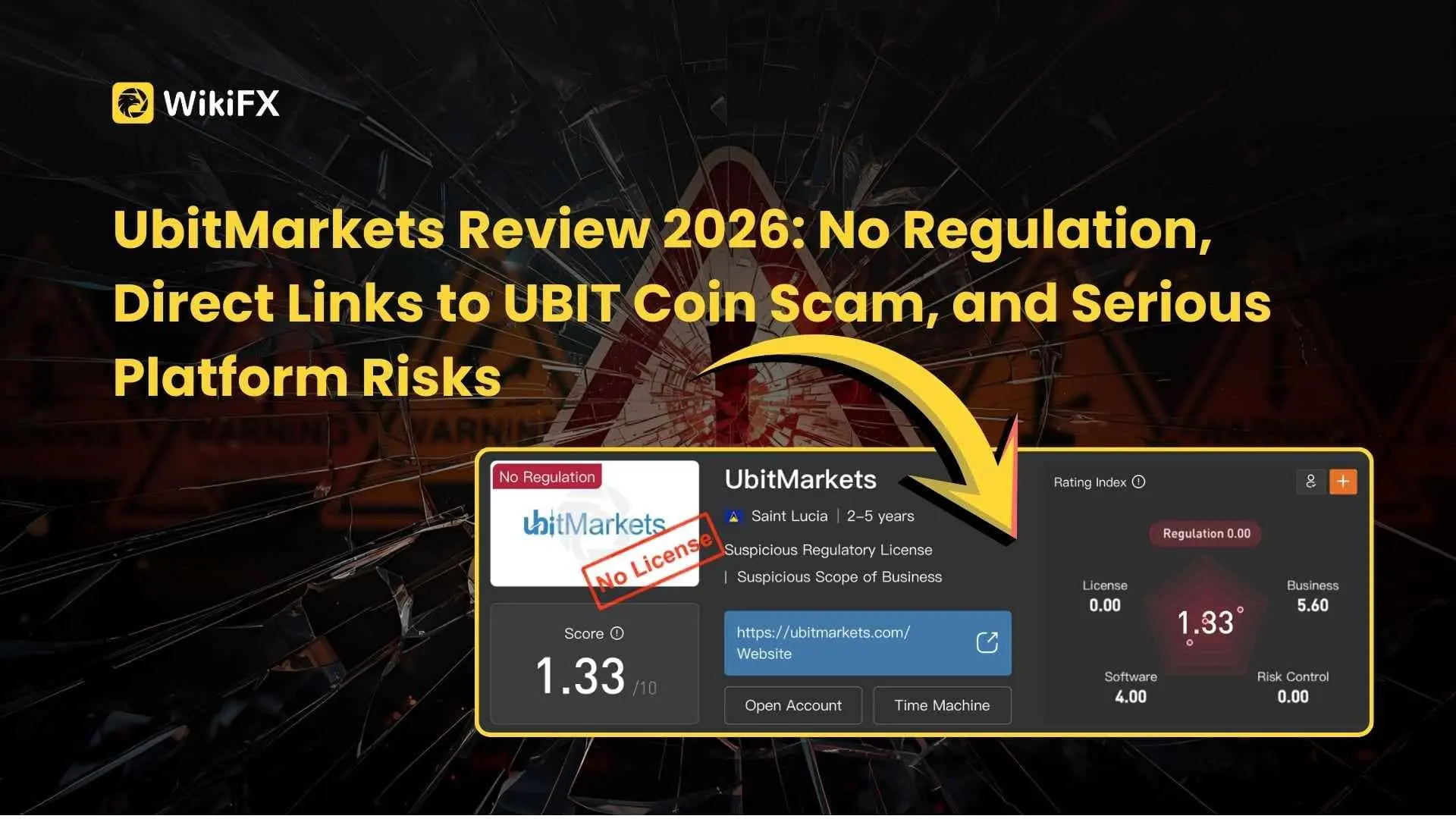UbitMarkets Review 2026: No Regulation, Direct Links to UBIT Coin Scam, and Serious Platform Risks
UbitMarkets review reveals no valid license and direct links to a fraudulent project, raising serious concerns over investor fund safety.
简体中文
繁體中文
English
Pусский
日本語
ภาษาไทย
Tiếng Việt
Bahasa Indonesia
Español
हिन्दी
Filippiiniläinen
Français
Deutsch
Português
Türkçe
한국어
العربية
Abstract:A 56-year-old Malaysian businesswoman recently fell victim to a fraudulent online investment scheme, losing nearly RM220,000. The scam, which was promoted on Facebook, lured the victim with promises of quick and significant returns. The scheme, operated under the name AFA Investment Malaysia, was advertised on the Facebook page Advance Fin Advisory, where the businesswoman first encountered it on August 31.

A 56-year-old Malaysian businesswoman recently fell victim to a fraudulent online investment scheme, losing nearly RM220,000. The scam, which was promoted on Facebook, lured the victim with promises of quick and significant returns. The scheme, operated under the name AFA Investment Malaysia, was advertised on the Facebook page Advance Fin Advisory, where the businesswoman first encountered it on August 31.
According to District Police Chief Superintendent Mohammad Shofee Tayib, the victim was drawn to the scheme after being promised substantial profits of up to RM20,980 within just 30 minutes, with an initial investment of RM360. Tempted by the potential for such rapid returns, she proceeded to make several online bank transfers beginning on September 2. Over the course of the transactions, she sent a total of RM219,843.75 to a mule account provided by the scammers.
Despite the hefty investments, the businesswoman never received the promised returns. After multiple failed attempts to recover her funds and realizing that she had been deceived, she lodged a police report. The authorities have since launched an investigation under Section 420 of the Penal Code, which deals with offenses related to cheating and fraud.

This case highlights a growing trend of online investment scams targeting unsuspecting individuals on social media platforms. The fraudulent schemes often promise high returns with minimal risk, enticing victims to part with their money before realizing they have been conned. Scammers frequently employ fake accounts and websites to create the illusion of legitimacy, making it difficult for victims to detect the fraud before it's too late.
The rise of such scams, particularly through social media channels, has become a significant concern for law enforcement agencies. The police have urged the public to remain cautious when considering online investments, especially those that promise unusually high returns in a short period. They also advise individuals to verify the legitimacy of investment opportunities by conducting thorough research and consulting with financial professionals before committing any funds.
In the case of AFA Investment Malaysia, authorities are continuing their investigation, and efforts are being made to track down the individuals responsible for the scam. Superintendent Tayib emphasized the importance of reporting such incidents to the police as soon as possible, as timely reports increase the likelihood of identifying and apprehending the perpetrators.
This incident serves as a stark reminder for the public to exercise caution and scepticism when encountering too-good-to-be-true investment offers, especially on social media platforms where fraudulent schemes are becoming increasingly prevalent.

Disclaimer:
The views in this article only represent the author's personal views, and do not constitute investment advice on this platform. This platform does not guarantee the accuracy, completeness and timeliness of the information in the article, and will not be liable for any loss caused by the use of or reliance on the information in the article.

UbitMarkets review reveals no valid license and direct links to a fraudulent project, raising serious concerns over investor fund safety.

A rare inside look at a scam compound in Myanmar reveals how a global, industrial-scale fraud network operates—using trafficked labour, fake identities, deepfakes and staged romance to systematically drain victims’ savings worldwide.

LMAX GROUP review: FCA regulation, WikiFX score 7.51/10, trader complaints, risks, and broker comparison. Is LMAX GROUP safe for traders?

Is withdrawal issue perennial for Phyntex Markets traders like you? Does the Comoros-based forex broker give you numerous excuses to deny you withdrawals? Faced account blocks when raising Phyntex Markets withdrawal queries? Feel that the broker’s customer support service does not exist for you? Many traders have openly expressed frustration on how the broker goes about its business on review platforms. In this Phyntex Markets review article, we have shared multiple complaints against the broker. Keep reading to know the same.
